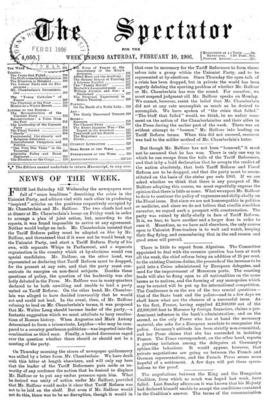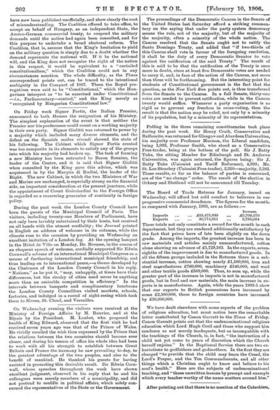. .
The nen-°otiations between the King and the Hungarian Coalition, from which so much was hoped last week, have failed. List Sunday afternoon it was known that his Majesty had declared himself unable to accept the conditions contained in the Coalition's answer. The terms of the communication have now been published unofficially, and show clearly the root of misunderstanding. The Coalition offered to take office, to accept on behalf of Hungary, as an independent• State, the Austro-German commercial treaty, to suspend the military demands until the nation had again been consulted, and for this purpose to undertake a broad electoral reform. The Coalition, that is, assume that the King's hesitation to yield on the military question is simply due to a doubt whether the demand represents the national will. If it be the national will, and the King does not recognise the right of the nation in this respect, it would be equivalent to a " curtailed constitutionalism," which the Coalition could not in any circumstances sanction. The whole difficulty, as the Times correspondent points out, can be traced to the intentional ambiguity in the Compact of 1867. There the Royal pre- rogatives were said to be " Constitutional," which the Hun- garians interpret as " to be exercised under Constitutional —i.e., Parliamentary—control," and the King merely as " recognised by Hungarian Constitutional law."











































